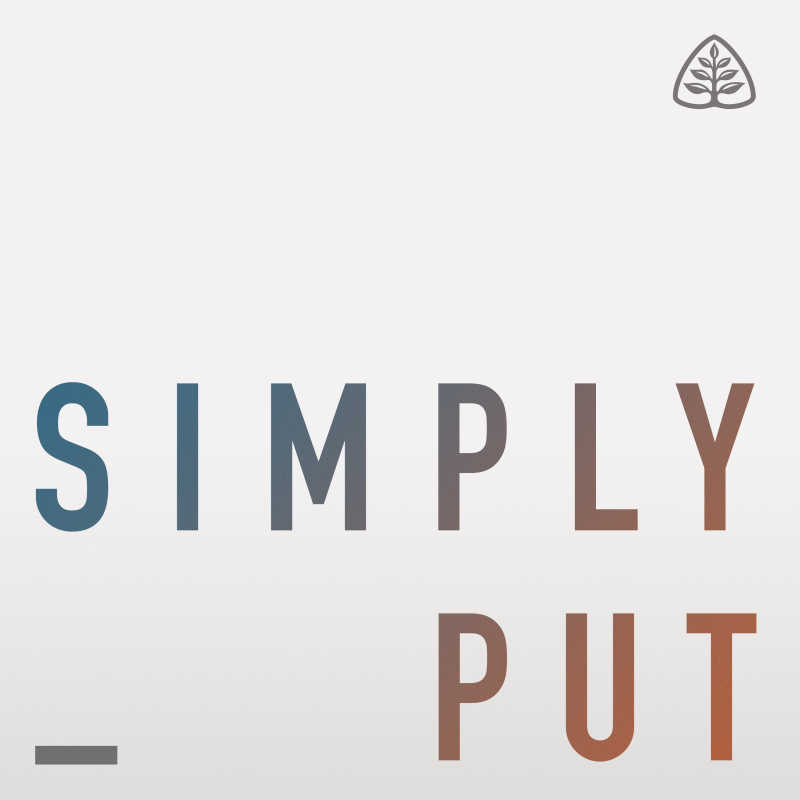Sabbath

After completing His work of creating the world, God rested—but not because He got tired and needed a break. Today, Barry Cooper explains how the Sabbath reminds us to regularly rest in God and enjoy the ultimate rest that He has given His people in Christ.
Transcript
Researchers have calculated that you spend approximately a third of your life asleep, and significantly more than that if you’ve ever had to renew your driving license at the DMV.
It is interesting that God has so ordered things that we need rest for our general wellbeing.
Our English word “Sabbath” comes from the Hebrew word “Shabbat”, which means “rest”. In Genesis chapter 2, we read that having completed the work of creation, God himself “rested”. The text says:
...on the seventh day God finished his work that he had done, and he rested on the seventh day from all his work that he had done. So God blessed the seventh day and made it holy, because on it God rested from all his work that he had done in creation.Now clearly, God’s choosing to rest from work on the seventh day is not because God gets tired. It’s meant to demonstrate for us a regular, weekly rhythm that we cannot neglect if we’re to thrive as human beings.
Historically, there’ve been some significant debates around the Sabbath.
One of these debates concerns the extent to which the Sabbath is still binding for Christian believers, and what exactly it looks like to observe the Sabbath.
“Observing the Sabbath” is of course one of the ten commandments God gave Moses and the people of Israel. Here’s Exodus chapter 20 verse 8:
Remember the Sabbath day, to keep it holy. Six days you shall labor, and do all your work, but the seventh day is a Sabbath to the Lord your God. On it you shall not do any work, you, or your son, or your daughter, your male servant, or your female servant, or your livestock, or the sojourner who is within your gates. For in six days the Lord made heaven and earth, the sea, and all that is in them, and rested on the seventh day. Therefore the Lord blessed the Sabbath day and made it holy.But if you fast forward to the coming of Jesus, things really start getting interesting. Because Jesus Himself, God the Son, frequently got into trouble with some of the religious teachers of his day - the Pharisees - for not observing the Sabbath according to their teaching. For example, by healing a disabled man on that day, Jesus was, according to the gospel writer John, “breaking the Sabbath” (Jn 5:18).
Now if Jesus is who he says he is - the incarnate second person of the Trinity - then he is the author of the Sabbath law. Which means he is best placed to explain what it is for, and how we are meant to observe it. Jesus makes this explicit when he identifies himself as “the Lord of the Sabbath”.
In that capacity, Jesus explains that the Sabbath “was made for man, not man for the Sabbath.”
In other words, the Sabbath rest is intended to serve human beings, not enslave them. It’s not intended to be a burden on human beings - which is what it had become under the Pharisees. Instead, it’s intended by God to be a gift, given for our enjoyment. The Pharisees had put into place a long list of things which they defined as “work” that must not be done on the Sabbath. And the list had soon become rather farcical. For example, under Pharisaical law, you were forbidden from tying and untying knots, plucking a single head of grain in a grainfield, or writing more than one letter of the alphabet.
They had added extra regulations for the Sabbath to the Word of God and had elevated obedience to these man-made Sabbath laws to such an extent, that they’d lost sight of God’s purpose in giving human beings a Sabbath in the first place. And that purpose is that we take regular time each week to remember God, to consciously rest in Him, and to join with his people in enjoying that rest, together.
Specifically, the Sabbath points us to the rest that we enjoy in Christ. In Christ, we can rest from our “work” because He has done all that is necessary for our salvation. We rest in His perfect obedience to God’s law on our behalf. We rest in the knowledge that in Him, our sin is paid for. We rest in the knowledge that in him, our future is secure. And so on. Christ himself is our Sabbath rest.
The Apostle Paul picks up on this in Colossians chapter 2. He tells believers:
Therefore let no one pass judgment on you in questions of food and drink, or with regard to a festival or a new moon or a Sabbath. These are a shadow of the things to come, but the substance belongs to Christ.Paul is telling us not to judge others in regard to exactly how they observe it.
The key thing is that we do regularly rest from our work on the Christian Sabbath, also known as “the Lord’s Day,” and that we do regularly remember and enjoy the ultimate rest that God has given us in Jesus Christ.

